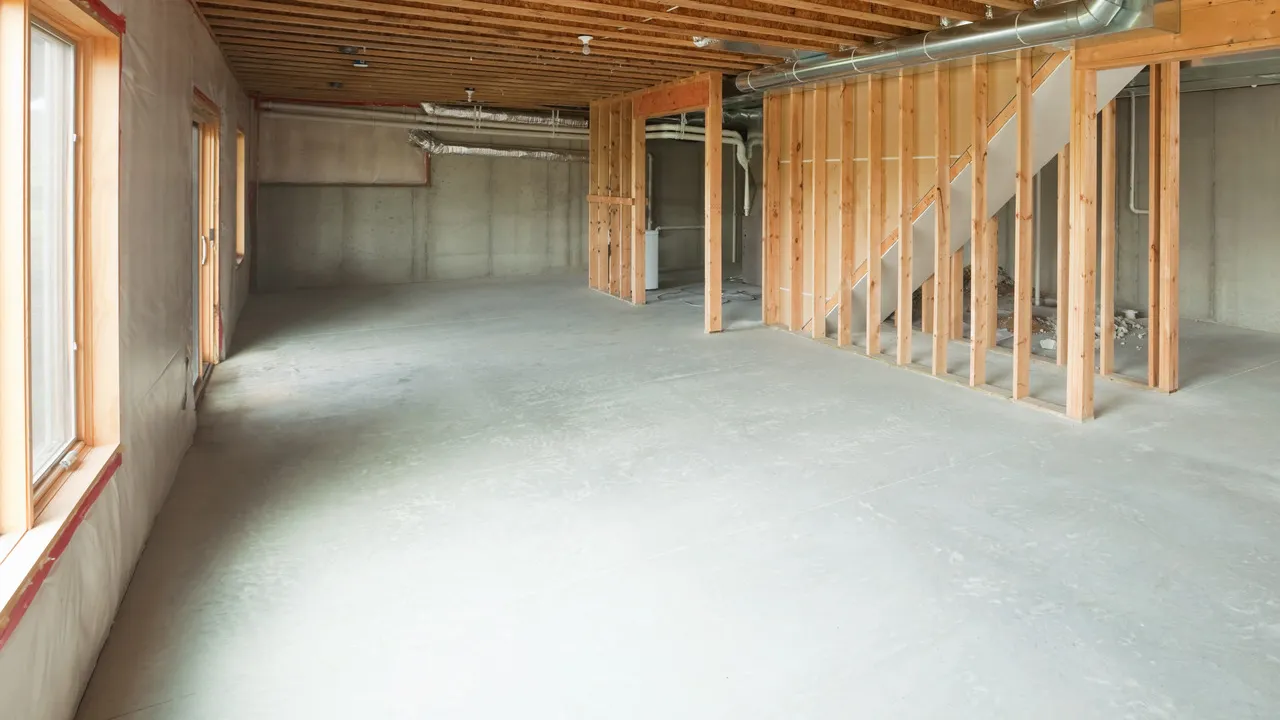
Strategic Considerations for Tiling Your Concrete Basement Floor
Embarking on a basement renovation project can be an exciting journey, but it’s crucial to make informed decisions, especially when it comes to choosing the right flooring. The flooring in your basement plays a pivotal role in the overall aesthetics and functionality of the space. In this blog post, we’ll delve into the strategic considerations for tiling your concrete basement floor, a choice that’s gaining popularity for its durability and water-resistant qualities.
Concrete Basement Floor vs. Wall-to-Wall Carpeting
When it comes to finishing your basement, the age-old dilemma often revolves around the choice between a concrete basement floor and wall-to-wall carpeting. While carpeting may seem cozy and traditional, it poses significant challenges in the face of floods or leaks. The porous nature of carpeting makes it susceptible to mold growth, even after professional cleaning.
On the flip side, opting for a ceramic tile floor on your concrete basement floor can be a game-changer. The inherent water resistance and durability of tiles make them an excellent choice, especially in areas prone to flooding or leaks. The decision to go with tiles is not just about aesthetics but also about practicality, offering a resilient surface that stands up to potential water-related challenges.
Understanding Tile Challenges
However, it’s crucial to understand that tiling a concrete basement floor comes with its own set of challenges. The natural movement of the basement concrete, including gradual shrinkage, can result in tension and subsequent cracking of the tile surface. This phenomenon is akin to the stress experienced by the Earth during earthquakes, and it often manifests in visible cracks within the first 30 days of fresh concrete placement.
Tile Strength and Vulnerability
Despite the density and strength of tiles under compression, they are surprisingly vulnerable to tension. The adhesive used to affix the tiles to the concrete plays a pivotal role in this vulnerability, essentially making the two materials one. Consequently, when the concrete experiences cracks, the tiles are prone to cracking as well. Understanding this dynamic is crucial for a successful basement tile installation.
Schedule Routine Checkups for Peace of Mind
To maintain the longevity of your finished basement, it is recommended to schedule periodic routine inspections. This proactive approach ensures that your finished basement and backup water systems work seamlessly, providing you with peace of mind. Regular inspections not only extend the life of your investment but also keep it safe from potential water damage for years to come.
Preventing and Addressing Tile Cracks
The good news is that there are measures you can take to prevent or address tile cracking on your concrete basement floor. Adding steel and fibers to the concrete slab can help mitigate the impact of tension, although it won’t completely eliminate cracks. Experts in kitchen remodeling and tiling also recommend a proactive approach: save extra tiles during installation. In the unfortunate event of cracks, these spare tiles can be utilized by a tile repair company to seamlessly match the existing floor, ensuring a quick and effective solution.
In conclusion
Tiling your concrete basement floor is a strategic decision that involves careful consideration of potential challenges and effective preventive measures. Knowledge is key when it comes to navigating the complexities of basement renovations. A resilient, water-resistant foundation is within reach with the right information and approach.
If you’re considering tiling your concrete basement floor or need expert advice on basement renovations, don’t hesitate to reach out to A+ Basements. Our team of professionals is dedicated to turning your basement into a functional and aesthetically pleasing space. Contact us today for a consultation, call us (720) 688-0158 or email us to info@aplusbasements.com and let’s transform your basement into a true asset for your home.



